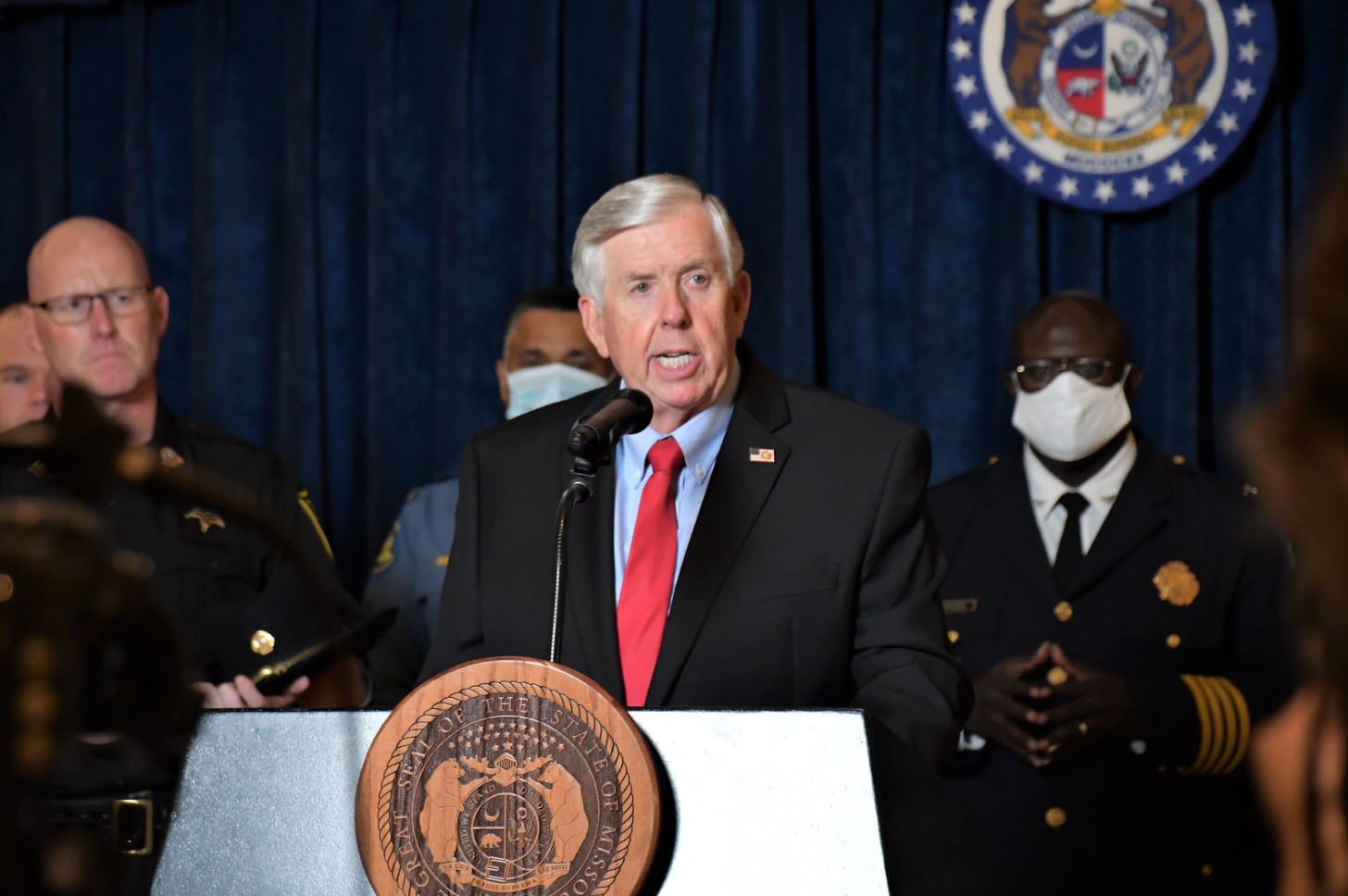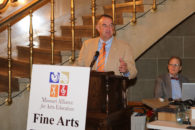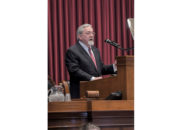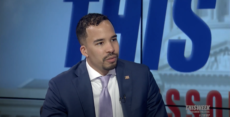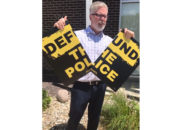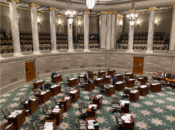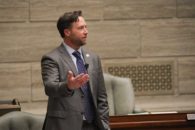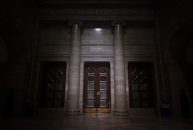JEFFERSON CITY, Mo. — Gov. Mike Parson has called lawmakers back to convene back in the capital city later this month to address violent crime.
The agenda for the special session includes six facets: residency requirements for St. Louis police officers, certification to try juveniles as an adult, witness statement admissibility, creation of a witness protection fund, modification of the offense of endangering a child, and an increased penalty for illegally transferring a firearm to a minor.
The special session has been called for July 27.
“As governor and a former law enforcement officer for more than 22 years, protecting our citizens and upholding the laws of our state are of utmost importance to my administration,” Parson, a Republican, said. “We know we have a serious problem with violent crime here in Missouri that must be addressed. Violent crime has been a problem in our state long before COVID-19, and we have seen it escalate even more in recent weeks, specifically in our big cities.”
Parson told reporters he’s been in contact with President Donald Trump and Vice President Mike Pence and is working with them “for more resources.” He said the pair have been concerned about violent crime in Missouri “for weeks now.”
Parson noted increases in violent crime in Missouri’s major cities, with Kansas City reporting its 101st homicide this week, a 35 percent increase over the same time last year.
St. Louis has seen 130 homicides this year, according to Parson, with four occurring on Tuesday. The city reported 99 at the same time last year.
When lawmakers return to the Capitol, they will be tasked with considering a proposal to end the requirement for St. Louis police officers to maintain residency in the city for at least seven years.
Additionally, lawmakers will consider the creation of a pretrial witness protection fund to provide security for witnesses and their families during investigations or criminal proceedings.
Parson said the “witness portion” of the special session “is a big deal” and would help Missouri’s law enforcement.
“People don’t want to come forward and testify because they’re scared, they’re fearful for their life,” Parson said.
Lawmakers will also consider criminalizing the act of knowingly encouraging, aiding, or causing a minor under the age of 17 to engage in a weapons offense and to increase the penalty of selling or delivering a firearm to a child under the age of 18 without parental consent to a class E felony from a class A misdemeanor.
“Violent crime isn’t just a Kansas City or St. Louis problem. It is a Missouri problem, and we cannot wait until next session to address it,” Parson said.
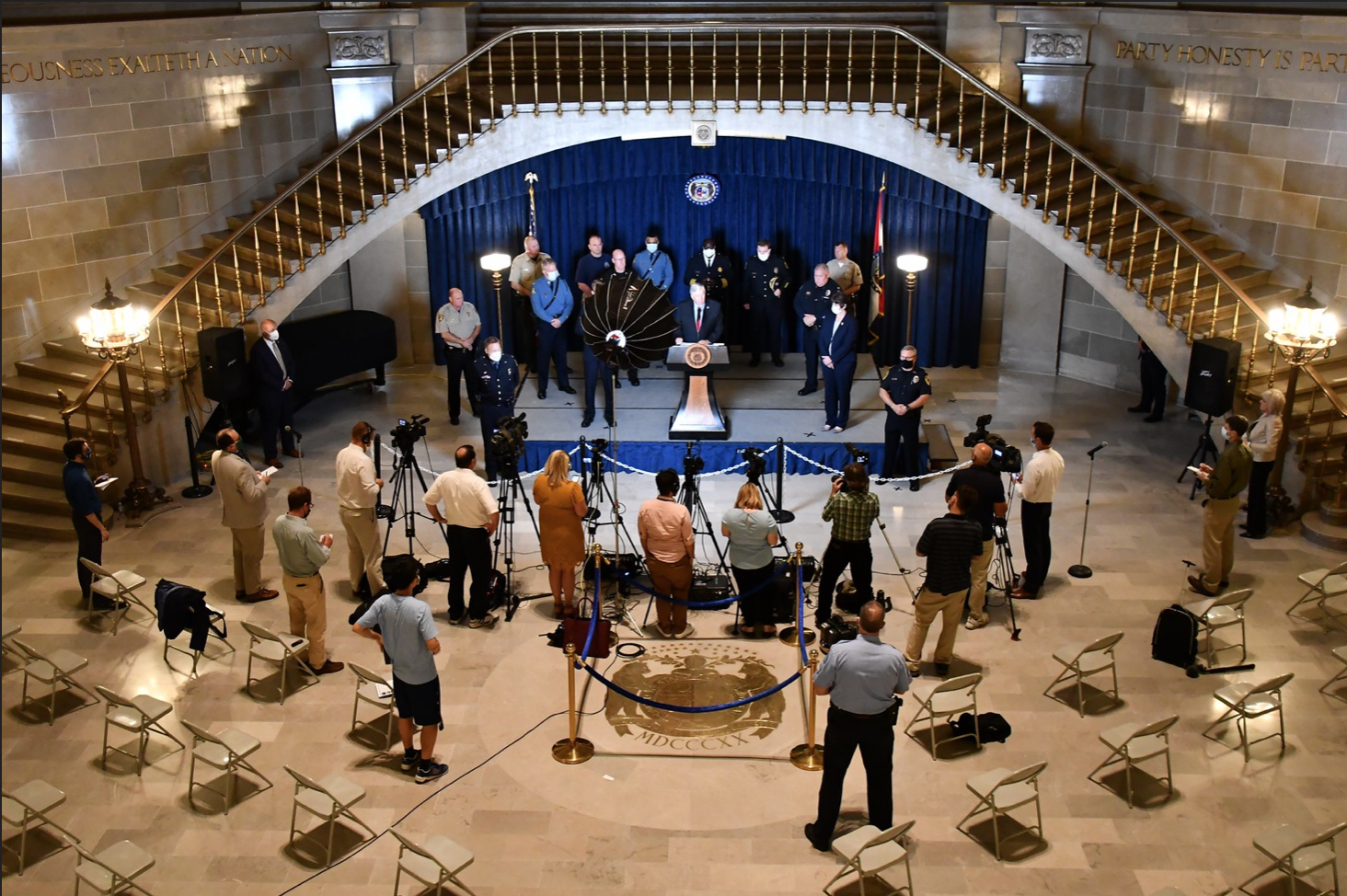
Democrats quickly decried Parson’s decision to call lawmakers back to Jefferson City to address violent crime — particularly as the nation has been rocked with protests calling for police reform in recent weeks. The protests, which have occurred throughout Missouri as well, stemmed from the death of an unarmed Black man at the hands of officers in Minnesota in late May.
“We had hoped the governor’s special session call would be motivated by a desire to save lives,” House Minority Leader Crystal Quade said. “Instead, he only seeks to distract from his bungled response to the pandemic, and the generational economic devastation resulting from it, with misinformed tough-on-crime rhetoric that will solve nothing.”
Quade said House Democrats will convene during the special session “to advocate for fact-based policies to reduce gun violence and reform a criminal justice system that too often preys on people of color.”
And State Auditor Nicole Galloway, a Democrat who is challenging Parson in the gubernatorial contest this year, said, “It’s well past time that Gov. Parson got serious about violence in Missouri.”
“After advancing failed policies for almost two decades in Jefferson City, Gov. Parson has finally realized that Missourians need action on the heartbreaking violence plaguing our communities,” she said.
Kansas City Mayor Quinton Lucas said at first glance, he is only supportive of one of the six measures: the witness protection fund. He called the rest an “80s/90s approach” on social media.
Republican state Rep. Shamed Dogan, chairman of the House Special Committee on Criminal Justice, said lawmakers should be able to “walk and chew gum at the same time,” meaning legislators should address both violent crime and police misconduct.
“Holding a special session regarding crime and not even attempting to reach a consensus on the urgent need for police reform would be a big missed opportunity,” Dogan said in a Twitter thread. “I urge the governor to expand his call for a special session to include the issue of police reform so that we can help our brave men and women in law enforcement and hold accountable those who fail to protect and serve.”
Thread on #moleg special session to fight crime:
I wrote an article 4 years ago this week for @nro about "pro-black, pro-police reforms". I believe in being pro-black and pro-police now more than ever. 1/https://t.co/dEyEZUQ502— Shamed Dogan (@Dogan4Rep) July 15, 2020
Ahead of the special session call, Democratic Senate Leader John Rizzo asked the state to provide COVID-19 testing to those working in the Capitol during the special session. When asked by The Missouri Times about the request, Parson appeared open to the idea.
“I think that’s fine, anything to make it safe,” Parson said. “It’ll be a safe place to do testing, so we’re fine with that.”
Even with testing, Rizzo said questions will still remain about the special session, such as what the protocol will be if someone does test positive for COVID-19. Will everyone be sent home or just the person who is sick, Rizzo questioned in a text message to The Missouri Times.
During the regular session, one House member tested positive for COVID-19 and was hospitalized. And just recently, multiple House staffers have recently tested positive for coronavirus, a source confirmed.
“These employees are currently self-quarantining at home and are not working in the building; however, there is a possibility that direct or indirect exposure to others may have occurred before the employees were tested,” an email to House members and staff said.
There have been 126 cases in Cole County since testing began in March. In all, nearly 30,000 Missourians have tested positive across the state.
Parson was joined at Wednesday’s press conference by Department of Public Safety Director Sandy Karsten, Missouri Highway Patrol Colonel Eric Olson, and multiple other law enforcement officers. Parson wore a mask when entering and exiting the stage for his remarks.
This story has been updated.
EDITOR’S NOTE: For up-to-date information on coronavirus, check with the CDC and DHSS.

